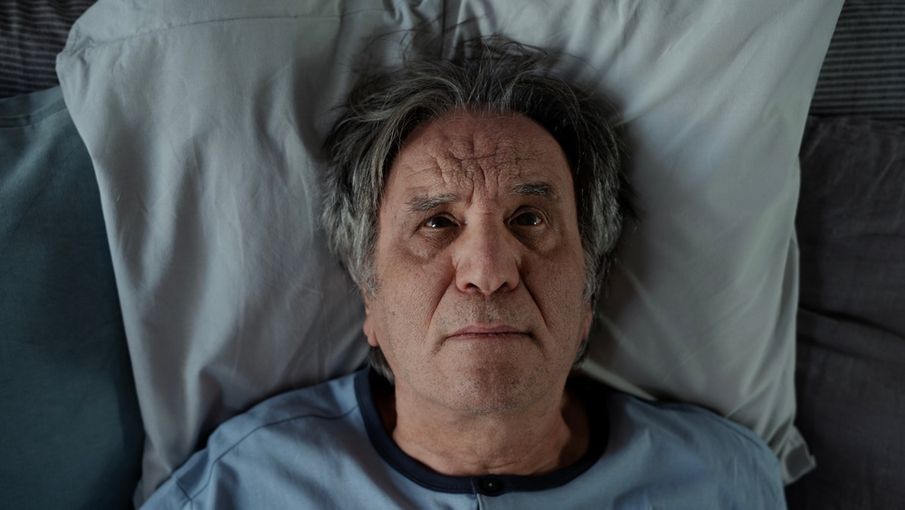A new study has confirmed a link between childhood trauma and difficulties around sleep and relaxation as an adult. So what are some techniques for learning to switch off?
In the first human-based study to explore the impact of childhood trauma on the brain, researchers from the University of Roehampton, London, have uncovered a link between childhood trauma and a reduced GABA concentration in the brain – which potentially impacts sleep and relaxation.
The study conducted MRI scans on 56 young adults, splitting them into two groups: one with high levels of childhood trauma, and the other with low levels of childhood trauma. GABA is an amino acid that operates as a neurotransmitter for the central nervous system. It inhibits particular brain signals and decreases the excitability in the nervous system – this, in turn, plays a role in reducing stress, anxiety, and fatigue.
What is childhood trauma?
According to The National Child Traumatic Stress Network, a traumatic event is a frightening, dangerous, or violent event that poses threat to a child’s life or bodily integrity. This could include:
- Physical, sexual, or psychological abuse and neglect (including trafficking)
- Natural and technological disasters or terrorism
- Family or community violence
- Sudden or violent loss of a loved one
- Substance use disorder (personal or familial)
- Refugee and war experiences (including torture)
- Serious accidents or life-threatening illness
- Military family-related stressors (e.g., deployment, parental loss or injury)
Find out more by visiting nctsn.org
What the results saw was that the participants in the higher childhood trauma group were more likely to have reduced GABA concentrations in the superior temporal gyrus (STG) – an area of the brain that plays a role in the perception of facial expressions and auditory processing – which can impact the brain’s ability to regulate emotions, leading to a greater chance of developing a mental illness such as anxiety disorder or depression.
“This research has broken new ground in analysing the impact of childhood trauma on the human brain,” said lead researcher, Dr Phil Hepsomali. “While further studies are essential, the evidence suggests that those who suffer trauma in early life are more likely to suffer from stress-based mental illness in adulthood. We must use the findings in this study to prompt greater research to help us further understand the impact of childhood trauma on the brain, helping shape healthcare and policy on the prevention and treatment of mental illness.”
In addition to the research from the University of Roehampton London, there are many examples of research into the way that childhood trauma can affect adults. If you feel affected by this topic, speak to your GP, or connect with a counsellor using Counselling Directory. But if you’re struggling with sleep and relaxation, there are some tools that you can start using immediately.
Sleep and rest are core pillars of our wellbeing. When we don’t feel rested, we may struggle to be resilient to the other stressors in our lives – catching us in a vicious cycle. To get you started, with setting up a good sleep routine, hypnotherapist Elise De Viell recommends asking yourself the following questions:
- Are you tired enough when you go to bed?
- What do you do before bed? Watching TV, scrolling on your phone etc. will reduce your production of melatonin (the sleep hormone). Fast-paced dramas can excite your mind and make it hard to drop off.
- What is your sleep environment like? Make sure your bedroom is as dark as a cave!
- What’s your current bedtime routine? Try to wind your mind down – you could read a book, listen to a self-hypnosis relaxation track, or try mindfulness. Your mind needs to associate the bedroom as a peaceful place.
Write down your answers and consider what might need to change, seeing if you can identify any particular areas that you think could be improved. For another exercise to try right away, counsellor Laurele Mitchell suggests setting aside a short amount of time each day – 15 minutes should do it – to write down everything that’s worrying you. If you’re someone who finds themselves stuck in a worry cycle as soon as your head hits the pillow, this is one for you.
“Often worries that keep us from sleeping are those that we haven’t paid enough attention to during our waking hours. Although perhaps counterintuitive, scheduling time to worry can prove really helpful in this instance,” Laurele explains. “Rather than being at the mercy of intrusive thoughts, scheduling time for this allows you to exercise more control over your worries, and to pay them attention at a time that is more convenient for you.”
When you’re struggling with sleep, everything else becomes so much harder – including making an effort to nurture your wellbeing. But, with time, you may be able to see significant improvements with just a few small changes. Visit the Happiful sleep hub for support and ideas for improving your relationship with rest and relaxation.. Sweet dreams.


Comments